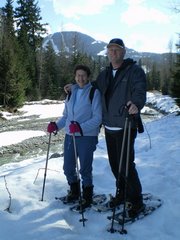 What does it mean that more than four hundred bishops entered through this arch in the fifth century at what is known as the third ecumenical council? What does it mean that it is now the ruin, as is the rest of Ephesus where the remains of this church sit? Paul ministered in this city -- almost got killed here. He left Timothy in charge of a fledgling church that had to figure out what faithfulness to Christ meant in the context of pluralism. Later, those Bishops gathered from the known Christian world to hammer out some of the most basic doctrines of the church that we take as gospel. What does it mean that they marched through this arch? Though the buildings lie in ruins, the ideas continue to influence the very practice of our faith -- in ways most of us have no sense of. In other words, we stand on some ancient, Byzantine shoulders. Ideas have consequences. The extent to which I know anything at all about God is a gift from those that stood in this once vibrant church and deliberated on my behalf. They are the family I never knew, and now give thanks for.
What does it mean that more than four hundred bishops entered through this arch in the fifth century at what is known as the third ecumenical council? What does it mean that it is now the ruin, as is the rest of Ephesus where the remains of this church sit? Paul ministered in this city -- almost got killed here. He left Timothy in charge of a fledgling church that had to figure out what faithfulness to Christ meant in the context of pluralism. Later, those Bishops gathered from the known Christian world to hammer out some of the most basic doctrines of the church that we take as gospel. What does it mean that they marched through this arch? Though the buildings lie in ruins, the ideas continue to influence the very practice of our faith -- in ways most of us have no sense of. In other words, we stand on some ancient, Byzantine shoulders. Ideas have consequences. The extent to which I know anything at all about God is a gift from those that stood in this once vibrant church and deliberated on my behalf. They are the family I never knew, and now give thanks for.The Library at Ephesus, once a wonder of the world. Now a fascade. Timothy had to frame his ministry in the shadow of the intellectual tradition it represented.
Did Paul and Timothy step on these very mosaic pieces? Their testimony endures and cries out, just as this pattern perseveres in the streets of the ancient city.





